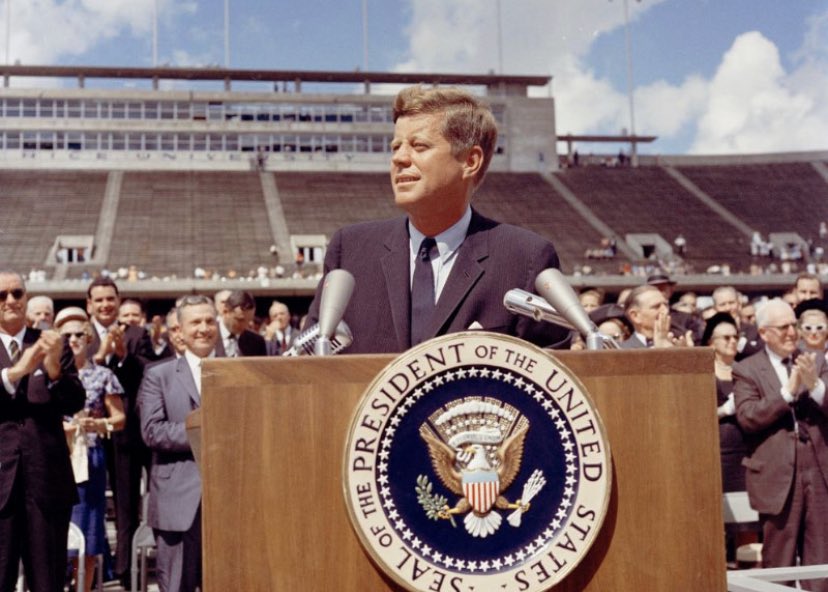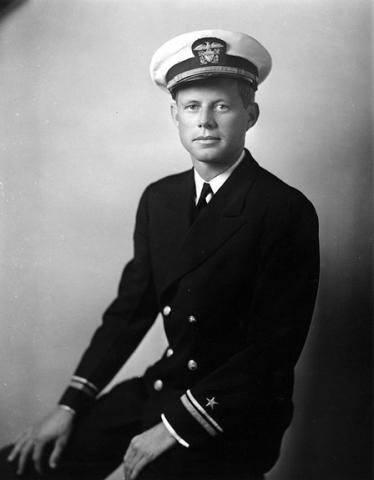“Ask not what your country can do for you; ask what you can do for your country.”
#JFKBirthday
Remembering one of the most charming political personalities of 20th Century - John F Kennedy
#JFKBirthday
Remembering one of the most charming political personalities of 20th Century - John F Kennedy
it is Kennedy, who launched the Peace Corps, challenged his country to land a man on the moon, and stirred Many with his optimistic talks. His vivid oratory & ideals, combined with the mystique of his Jacqueline, made the Kennedy legend into something that is discussed even today
Born in a family of immense Wealth & privilege , Jack ( as JFK was known) was second of nine child of his parents. His parents, Joseph and Rose Kennedy, were members of two of Boston’s most prominent Irish Catholic political families.
his father, Joseph Kennedy, in 1937 was named U.S. ambassador to Britain. As a student at Harvard, Jack traveled in Europe as his father’s secretary. His senior thesis about British’s unpreparedness for war was later published as an acclaimed book, “Why England Slept” (1940).
this book& #39;s title is an allusion to Winston Churchill& #39;s 1938 book While England Slept, which examined the buildup of German power. Kennedy& #39;s book examines the failures of the British to take steps to prevent World War II, and initial lack of response to Hitler& #39;s threats of war.
it was JFK& #39;s influential father set him up for his destiny and primed him up for politics. It is difficult to read Why England Slept without seeing the shadow of the future president hanging over every word. Most prophetic indeed is Henry Luce’s foreword-
“In recent there has been a certain amount of alarm concerning the “attitude” of the younger generation. If John Kennedy is characteristic of the younger generation—and I believe he is—many of us would be happy to have the destinies of this Republic handed over to his generation”
Why England Slept attempts to explain why Britain delayed rearming for so long prior to World War II. Its primary argument is that Britain deeply believed in the League of Nations. It took time for these attitudes to change, and this delay hurt Britain.
JFK joined the U.S. Navy in 1941 and two years later in South Pacific, where he was given command of a PT boat. In August 1943, a Japanese destroyer struck the craft. Kennedy helped some of his crew back to safety, and was awarded the Navy and Marine Corps Medal for heroism.
His older brother, was not so fortunate: He was killed in August 1944 when his Navy airplane exploded on a mission against a Germans. His grieving father told JFK it was his duty to fulfill the destiny once intended for Joe Jr.: to become the first Catholic president of the USA
Abandoning plans to be a journalist, Jack left the Navy by the end of 1944. Less than a year later, he was back in Boston preparing for a run for Congress in 1946.
backed by his father’s fortune, Jack won his party’s nomination handily and won by nearly three to one over his Republican opponent in the general election. He entered the 80th Congress in January 1947, at the age of 29, and immediately attracted attention.
Kennedy won reelection to the House of Representatives in 1948 and 1950, and in 1952 ran successfully for the Senate, defeating the popular Republican incumbent Henry Cabot Lodge Jr. On September 12, 1953, JFK married the beautiful journalist Jacqueline (Jackie) Lee Bouvier.
Two years later, he was forced to undergo a painful operation on his back. While recovering, Jack wrote another book, Profiles in Courage, which won the Pulitzer Prize for biography in 1957. (It was later revealed to be mostly the work of Kennedy’s longtime aide, Sorenson.)
What JFK wrote in - "Senators, must be politicians – and politicians must be concerned only with winning votes, not with statesmanship or courage. Mothers may still want their favorite sons to grow up to be President, but they do not want them to become politicians in the process
"Perhaps if the American people comprehended the pressures which discourage acts of political courage, which drive a Senator to abandon his conscience, then they might be more appreciative of those still able to follow the path of courage." is still relevant for every politician
JFK describes pressure faced by senators as pressure to be liked, pressure to be re-elected, and pressure of the constituency. The same holds true for any policitician even today, Politicians who rise above these 3 pressures have done exceedingly well.
This book inspired books relevant to three ongoing political careers: Profiles In Character, by Gov. Jeb Bush, and Profiles In Courage for Our Time, by Caroline Kennedy (JFK& #39;s daughter), and Why Courage Matters and Hard Call, by Sen. John McCain.
The timing of this book& #39;s publication (1955, when JFK was in the early stages of presidential aspirations) set the stage for the 1960 election: JFK would run on a theme that, as president, he would make “courageous decisions” that benefited America. Sounds similar to 2014 theme?
Offering a young, energetic alternative to Nixon and the status quo, Kennedy benefited from his performance (and telegenic appearance) in the first-ever televised debates, watched by millions of viewers.
In November 1960’s election, Kennedy won by a narrow margin–less than 120,000 out of some 70 million votes cast–becoming the youngest man and the first Roman Catholic to be elected president of the United States.
Kennedy was enormously popular president, both at home and abroad, and his family drew famous comparisons to King Arthur’s court at Camelot. His brother Bobby served as his attorney general, while the youngest Kennedy son, Edward was elected to JFK’s former Senate seat in 1962.
On King Arthur and Camelot- Camelot was a mythical castled city, said to be located in Great Britain, where King Arthur held court. It was the center of the Kingdom and in Arthurian legend would become the location of the round table that held 150 knights. https://www.google.co.in/amp/s/www.livescience.com/amp/28992-camelot.html">https://www.google.co.in/amp/s/www...
Jackie Kennedy became an international icon of style, beauty and sophistication, though stories of her husband’s numerous marital infidelities (and his personal association with members of organized crime) would later emerge to complicate the Kennedys’ idyllic image.
On November 22, 1963, the president and his wife landed in Dallas; as the motorcade was passing through downtown Dallas, shots rang out; Kennedy was struck twice, in the neck and head, and was pronounced dead shortly after arriving at a nearby hospital.
Twenty-four-year-old Lee Harvey Oswald, known to have Communist sympathies, was arrested for the killing but was shot and fatally wounded two days later by local nightclub owner Jack Ruby while being led to jail. Almost immediately,
alternative theories of Kennedy’s assassination emerged–including conspiracies run by the KGB, the Mafia and the U.S. military-industrial complex, among others. A presidential commission led by Chief Justice Earl Warren concluded that Oswald had acted alone,
but speculation and debate over the assassination has persisted even till today. such was his popularity that 53% of all Americans admitted to crying after they heard the news of his assassination.
He was a man who could inspire a nation and was proud of his nation. His pride for USA is demonstrated in these words which he wrote in his book-
"Let the word go forth" -
“Let the word go forth from this time and place, to friend and foe alike, that the torch has been passed to a new generation of Americans, born in this century, tempered by war, disciplined by a hard and bitter peace, proud of our ancient heritage, and
“Let the word go forth from this time and place, to friend and foe alike, that the torch has been passed to a new generation of Americans, born in this century, tempered by war, disciplined by a hard and bitter peace, proud of our ancient heritage, and
unwilling to witness or permit the slow undoing of those human rights to which this nation has always been committed, and to which we are committed today at home and around the world. Let every nation know, whether it wishes us well or ill,
“that we shall pay any price, bear any burden, meet any hardship, support any friend, oppose any foe to assure the survival and the success of liberty.”
words like these are so aptly suitable for our country as well - “In a democracy, every citizen, regardless of his interest in politics, & #39;holds office& #39;; every one of us is in a position of responsibility;
and, in the final analysis, the kind of government we get depends upon how we fulfill those responsibilities. We, the people, are the boss, and we will get the kind of political leadership, be it good or bad, that we demand and deserve.”
Credits - Articles from JFK Library, http://History.com"> http://History.com and a couple of books.

 Read on Twitter
Read on Twitter



